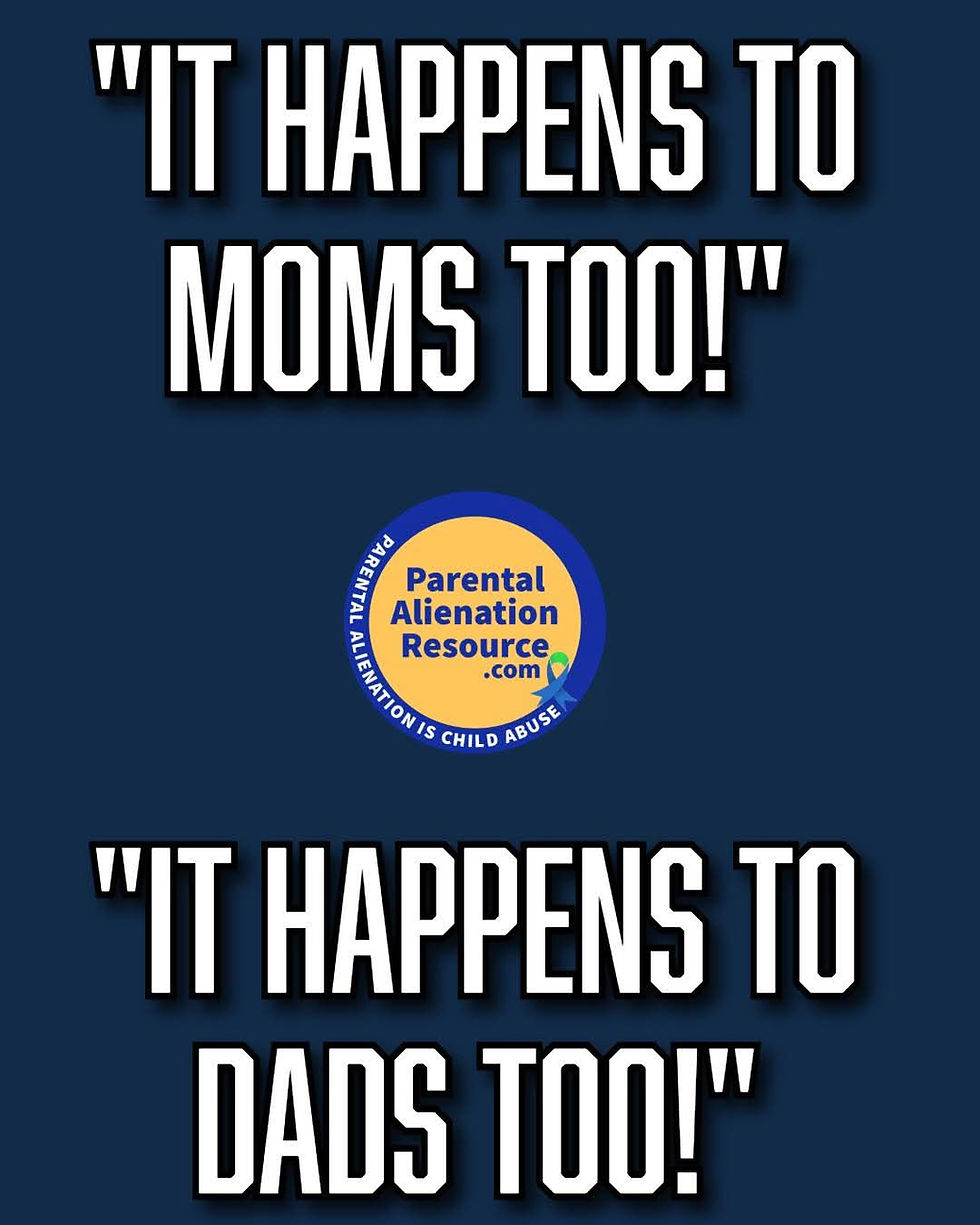Determining if a Child's Rejection or Hostility Towards a Targeted Parent is a Result of Influence
- Parental Alienation Resource

- Aug 6, 2023
- 1 min read
Updated: Aug 15, 2023

Determining whether a child's rejection or hostility towards a targeted parent is a result of influence from the alienating parent or other factors can be a complex task for professionals. However, there are several methods and assessments that experts often use to make this determination. Here are a few approaches:
Comprehensive assessment: Professionals may conduct comprehensive assessments involving interviews, observations, and psychological testing to gain a deeper understanding of the family dynamics and the child's experiences.
Parental alienation assessment scales: There are specific assessment scales, such as the Child Alienation Scale (CAS) or the Parental Alienation Questionnaire (PAQ), that help professionals evaluate the presence and severity of parental alienation behaviors in a particular case.
Collateral information: Gathering information from multiple sources, including interviews with both parents, extended family members, teachers, therapists, and other relevant parties, can provide valuable insights into the child's experiences and the dynamics between the parents.
Therapeutic interviews: Skilled therapists may conduct individual therapy sessions with the child, the targeted parent, and the alienating parent separately to explore their perspectives, emotions, and interactions, which can help identify any coercive influence or other factors.
Forensic evaluations: In contentious cases, forensic evaluations may be utilized, involving additional assessments by forensic psychologists or social workers who are experienced in dealing with high-conflict situations and determining the best interests of the child.
It's important to remember that these assessments should be conducted by trained professionals who specialize in family dynamics, child psychology, and parental alienation. Their expertise and careful analysis of the evidence will help determine the underlying factors contributing to the child's rejection or hostility towards the targeted parent.









Comments